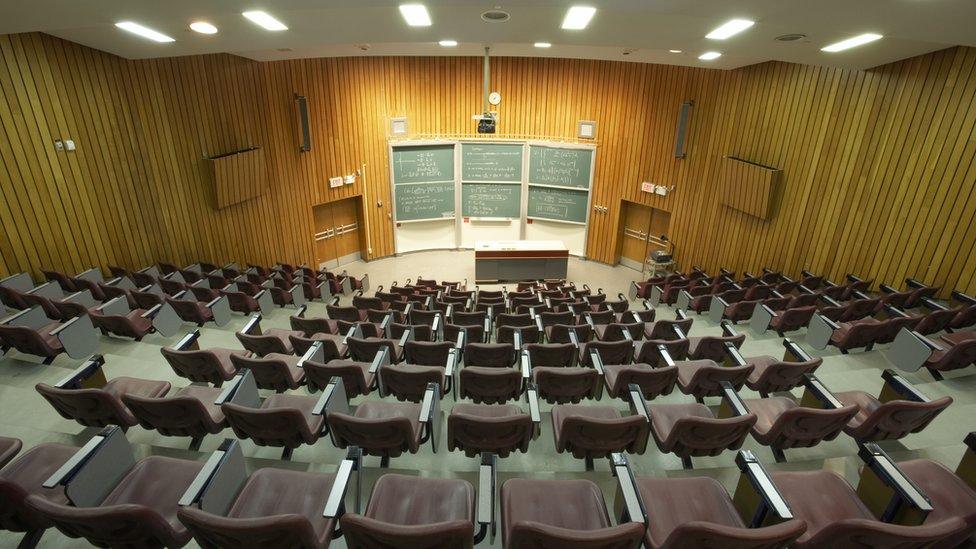Irish Traveller culture to be promoted through school curriculum
- Published
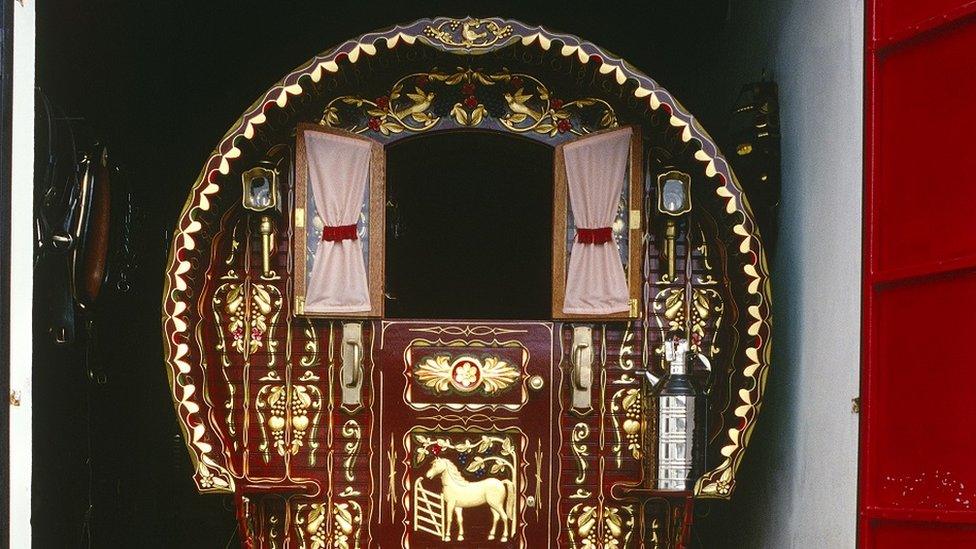
"It's a monstrous thing, because we've always been here."
That is one Traveller's take on what he sees as the omission of his community's culture in the Irish school curriculum.
But that could soon change after research this week, external presented a possible framework of how such history and culture could be introduced to education.
First commissioned by former minister Richard Bruton in 2018, the National Council for Curriculum and Assessment (NCCA) study outlines its ambitions for future teaching.
'Beautiful and boring'
Oein DeBhairduin works with the National Museum of Ireland, having previously been the first Traveller to work in the Oireachtas (Irish parliament).
He said there was very little evidence of Traveller history being taught in Irish schools, saying it was a "monstrous thing".
"We want to make sure the curriculum is reflective of the society we live in," he said.
And according to him, that involves community input and core groundwork to any future teaching.
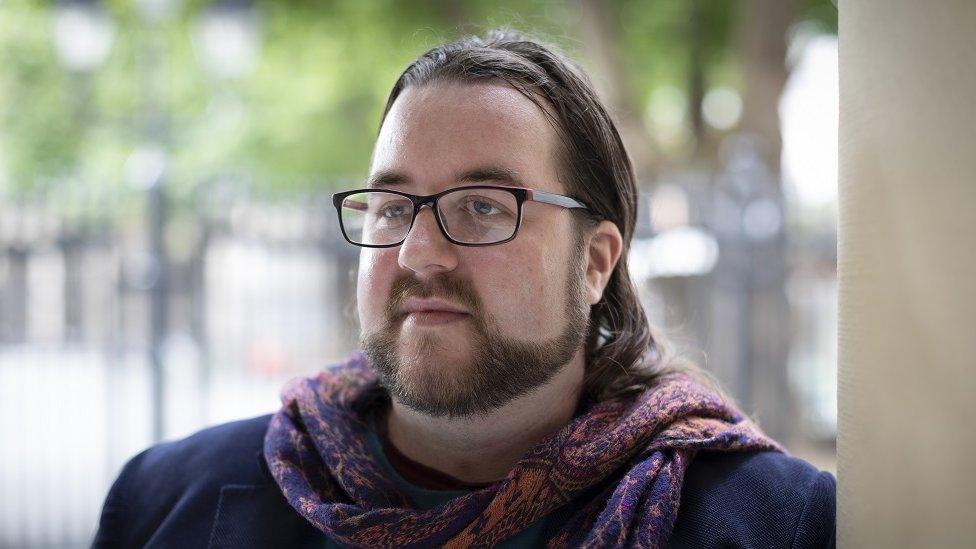
Oein DeBhairduin says schools need to work with the Traveller community to avoid othering the ethnic group
"If we're going to engage with the subject, we need to ensure the schools and teachers are appropriately supported.
"What do you actually know about Travellers?
"Chances are the source of the information is not coming from community exposure to us.
"We're over 40,000 people, we're a very diverse community group… we're just as bright-minded, as wild and beautiful and as boring as everybody else."
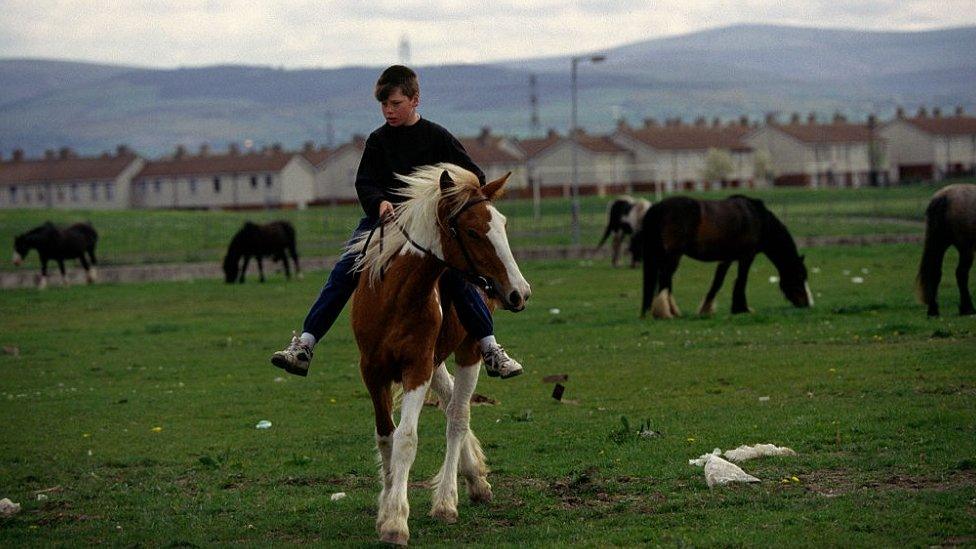
A boy with his horse on Dublin's Ballymun estate in 1998
A spokesperson for the Department of Education in Ireland - which provided funding - said the report aimed to provide an important resource to support teachers, practitioners and students in understanding and appreciating Traveller culture and history.
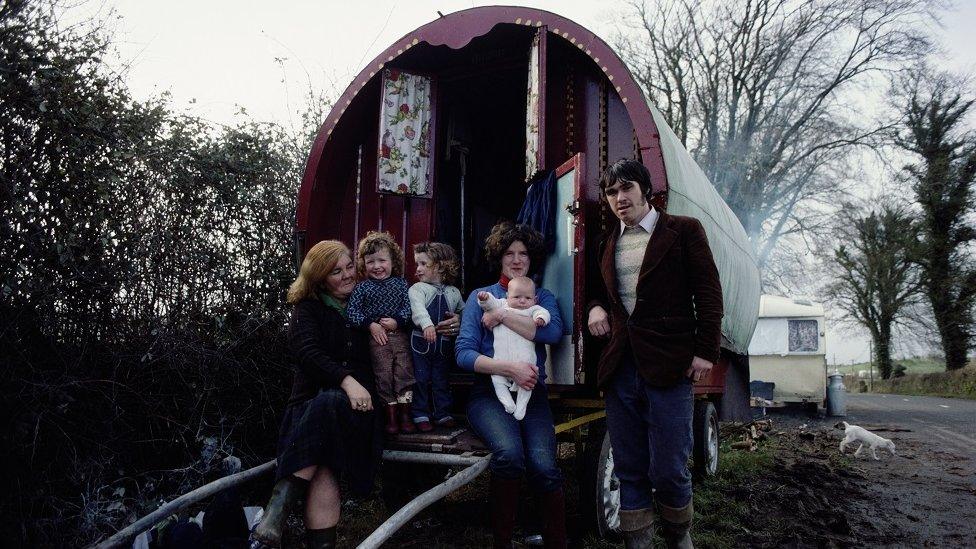
The research provides a blueprint of Irish Traveller culture and history for the Irish curriculum
NCCA said the research was an important first step that aimed to provide an overview of what was currently known and had been recorded about the different aspects of Traveller culture and history.
Topics include family structures, nomadism and the impact of racism and discrimination on Travellers as well as storytelling, music and language.
"It will be used to inform the review and updating/redevelopment of curriculum specifications and the development of new specifications as part of ongoing work across sectors," the report said.
"It will also provide a basis for the development of resources and materials for teachers/practitioners, and inform our thinking around intercultural approaches to education more broadly."
Allow X content?
This article contains content provided by X. We ask for your permission before anything is loaded, as they may be using cookies and other technologies. You may want to read X’s cookie policy, external and privacy policy, external before accepting. To view this content choose ‘accept and continue’.

NCCA's research recommends the study of Cant, also known as Gammon or Shelta, an indigenous language used by Irish Travellers.
Considered a Creole language based on pidgin elements of Old Irish, but also incorporating English and other languages, it is a highly flexible dialect unique to certain communities.
It was added to Ireland's National Inventory of Intangible Cultural Heritage in 2019 - a list of living practices and customs that the Irish government has agreed to protect, promote and celebrate under Unesco's guidance.
Mr DeBhairduin recommends a nationwide survey to begin truly documenting the language.
"It has to do more than survive, we need to be in a position to let it prosper," he said.
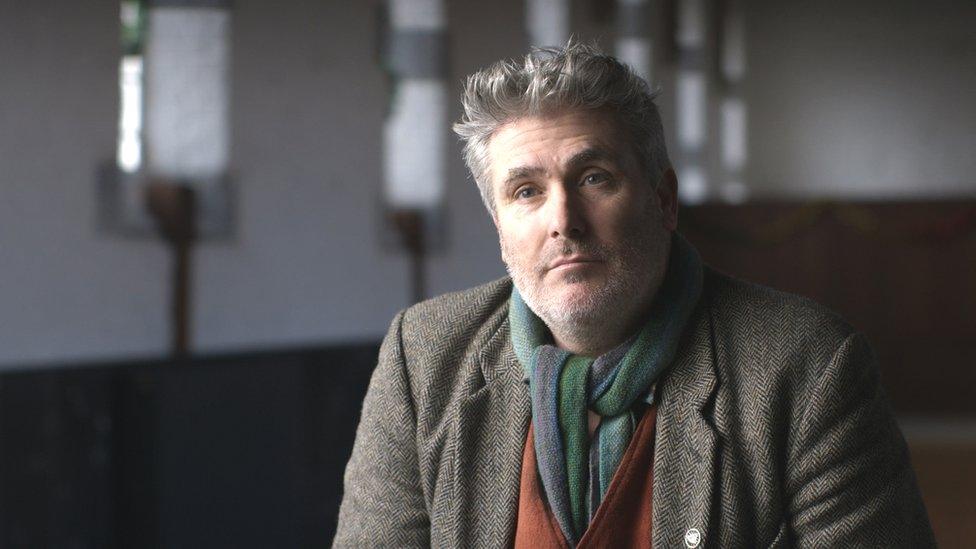
Patrick Nevin has worked within the Traveller community for more than 20 years
Others are taking a harder stance.
"Our language is due its rightful place. It would be as easy as standing up in the Dáil [lower house of Irish parliament] and giving it state recognition… Leo Varadkar [Irish prime minister] could do that tomorrow," said Patrick Nevin.
He said the Traveller Cant was every bit as key as other languages on the island of Ireland - pointing to the success in protecting Irish Gaelic and Ulster Scots in Northern Ireland - and should be recognised with equal status.
Mr Nevin is the manager of the Tallaght Travellers Community Development Programme and has been fighting for Travellers' rights for nearly 25 years.
His organisation and several others recently presented research to the Dáil, external which further indicated that racism and consistent discrimination contribute towards alarming suicide figures within the Irish Traveller community.
In 2021, an Irish parliamentary committee reported that 11% of Travellers in Ireland die by suicide., external
Irish Traveller Mags Casey lost 28 family members to suicide
It has been six years since former taoiseach (prime minister) Enda Kenny officially recognised the distinct ethnic group in Irish parliament.
Steps have been taken since then for the inclusion of Irish Travellers' culture and history within many aspects of society in an effort to ease racial discrimination.
Mr Nevin welcomed the prospect of Traveller history being introduced to schools but said it needed to be an "absolute partnership" that would see Travellers engage with the education system, "laying ownership" to their own identities.
This may take time yet, with research showing young people from the Irish Traveller community are the least likely to enter higher education in the UK, with similar statistics presenting in the Republic of Ireland.
"We really do want to be a part of society," he added, "We are a part of what makes up the modern Irish state."
Related topics
- Published1 March 2017
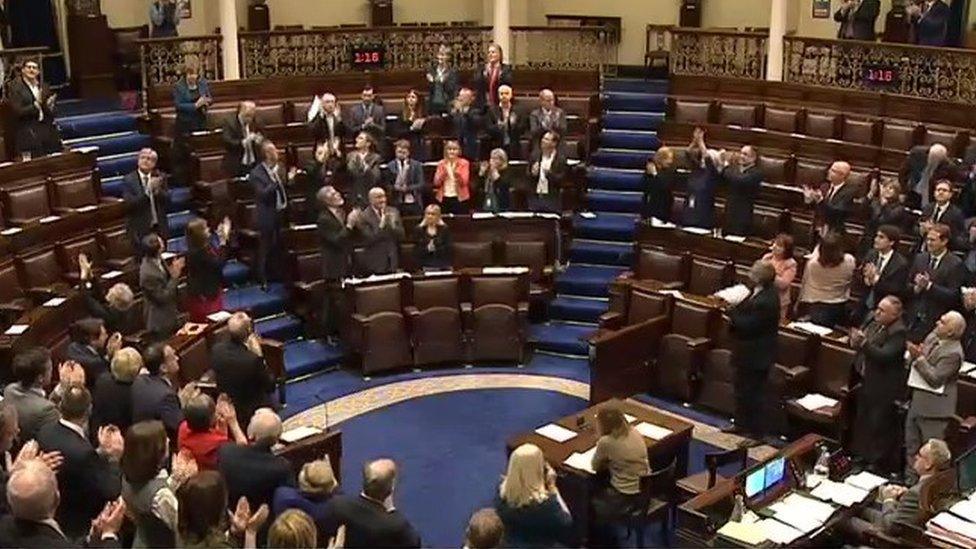
- Published18 April 2022
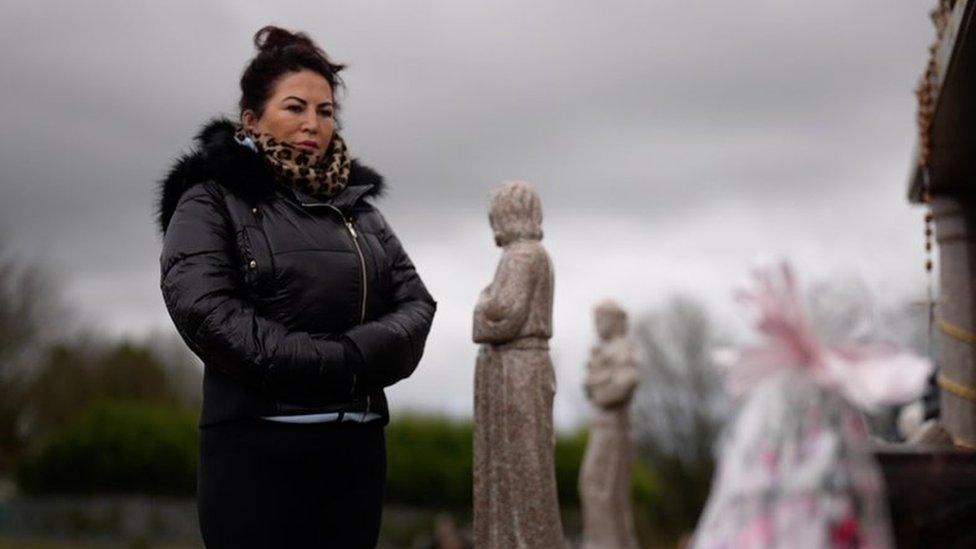
- Published7 July 2022
